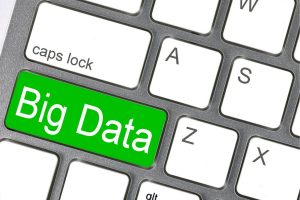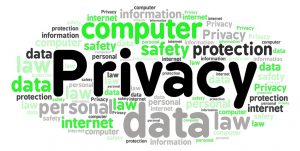
SID: 500519747 | Name: jiaxuan (Naomi) Liu | CLASS: 11 | TUTOR: Yuan Jiang
“Who has seen an advertisement that has convinced you that your microphone is listening to your conversation?” (Noujaim, J & Amer, K, 2019)
Over the years, have you noticed that when you open an online shopping platform after talking to a friend about a certain product, you find that it is being recommended to you on the homepage? Or when you just discussed a movie or music with a friend, and then suddenly your phone pops up with that very information. When you saw these messages, the first thing that comes to your mind is the humanisation of the speed of technological development or the crisis you feel about your privacy.
The Great Hack
Source:https://www.youtube.com/watch?v=iX8GxLP1FHo
The Great Hack shows us how the company uses big data and the internet for business and politics through the eyes of academics, investigative journalists, Cambridge Analytica ex-employees and others. The leak of user information on the social networking site Facebook has caused controversy for founder and CEO Mark Zuckerberg. The great hack presents a glimpse of the information security gap that exists at this stage. It is the unregulated online market environment that has created this huge gap.
Cambridge Analytica (CA), the big data marketing agency behind the Facebook incident, is involved. They took advantage of Facebook’s strong user base and the wealth of personal social information to publish a test on users. In total, 270,000 people have used the app since its release. What these 270,000 people didn’t know was that when they authorised their login, the app automatically accessed their private friend’s list and all their friends’ public information. If you have Facebook friends who have done this test, then the information is compromised even if you didn’t do it. They sort the data they collect into categories and define some of them as “the persuadables” based on each person’s personality preferences, meaning that these people are relatively easy to change their choices. They target these people with different political advertising videos. The ultimate goal is political brainwashing – to guide the behaviour of these people until they vote for Trump. In the end, they succussed in interventions in the 2016 US presidential election and the UK’s Brexit. In the words of one of the documentary’s protagonists, Brittany Kaiser, an ex-employee of Cambridge said ” We targeted those whose mind would change until they saw the world the way we wanted them to.” (Noujaim, J & Amer, K, 2019)
Big Data, is it making the world a worse place?

Big Data is a collection of information assets with high growth rates and diverse characteristics. This technology has been described by some as the “fourth technological revolution”. When big data becomes a business that can shape the destiny of nations, the uninformed public becomes a pawn in the process, moving forward and backward, in the hands of others. Big Data can turn each of us into 40-50,000 data points. Based on having some simple general direction of our shopping habits, age, reading preferences, etc, capable of pinpointing every aspect of our lives to determine what we want to see, what we want to hear, what we want to do, and can use this as the basis for precise delivery, making us think that what we see and what we do is the result of our free and consistent choice.
On the other hand, the author of “Big Data: A Revolution That Will Transform How We Live, Work, and Think” describes how Google harvests data from people’s search records in Big Data to conduct secondary analyses, such as the prediction of flu outbreaks in certain places; how Amazon uses user purchase history to suggest targeted products before the holiday season. (Mayer-Schönberger & Cukier, 2014) Travel sites provide travellers with their preferred itinerary recommendations through big data, and e-commerce companies make recommendations based on big data to users. In the secondary market, big data can help buyers and sellers find the right target for their transactions. Additionally, big data assists companies in improving their marketing accuracy, reducing logistics and inventory costs, reducing investment risks, and enhancing their advertising accuracy. The use of big data by social networking sites allows them to make friend recommendations and to provide users with more accurate job information about companies.
Privacy

Privacy is compromised and exploited, and this is a complex issue. Privacy can be defined as the “right to be left alone”. Information privacy can exist when the use, release, and circulation of personal information is controlled. Individuals’ privacy is invaded when they cannot maintain a substantial degree of control over their personal information. (Chung & Paynter, 2002) We thought we were using the Internet to make an extension of our free will, but unfortunately, we have only become slaves to data through the Internet. And what is even more unfortunate is that there is little we can do to escape becoming slaves. In today’s society, almost all of us cannot live without the internet, and in our daily lives you go about installing all sorts of programs to your communication devices, which usually require authorisation for your communication, camera, etc., and we all know that if you refuse to authorise them, you cannot use them at all. Essentially, in order to be convenient, we must sell our privacy permissions, exposing our data points to different businesses, and with these data points in hand, these invisible hands will tailor a set of traps for us to fall prey to without our knowledge. As the film says, it’s like a boomerang that we throw at ourselves, and in the end, it hits us. The day we choose to integrate into the Internet society, we voluntarily turn ourselves into slaves.

However, we still see hope that there is still a part of the world that is fighting to protect our data privacy in this documentary. Berners-Lee mentioned that companies, governments, and citizens need to create a global network society and work together to fix internet problems. (Berners-Lee, T. 2019) Tools have been developed that allow Internet users to surf the Web anonymously. These tools make sure that IP addresses from which users can be identified cannot be associated with requests to Web sites. (Cranor, 1999) Governments enact laws to protect privacy such as the Privacy Act 1988 in Australia. The Privacy Act protects the handling of personal information about individuals, including collection, use, storage and disclosure, especially in the private sector. (Watts, D., & Casanovas, P. 2019). Individuals also need to protect privacy such as use security software, be careful what to share on social media.
Conclusion

In conclusion, the Internet is one of the most important inventions. The Internet has brought unprecedented convenience to our lives and has brought us closer to each other. Sir Tim suggests that while the internet has created a platform for human voices to be heard, it has also given opportunities to the bad guys. (Berners-Lee, T.2019) The internet has changed the way we live and will continue to have a profound impact on our future but at the same time, while the internet has provided convenience, it has also planted hidden dangers for people’s information security. The Internet is the work of scientists, technology should lead us to is a better world. The most valuable asset in the Internet age is data, and the use and monitoring of data have become two of the most important things. However, the current level of development of Internet technology has far exceeded the level of human regulation. This is a long and arduous process, but it is inevitable and necessary.
Reference list:
1. Berners-Lee, T. (2019). 30 years on, what’s next #ForTheWeb? World Wide Web Foundation. https://webfoundation.org/2019/03/web-birthday-30/
2.Noujaim, J & Amer,K (Director). (2019). The Great Hack [Film]. Netflix.
3. Chung, W., & Paynter, J. (2002). Privacy issues on the internet. Proceedings of the 35th Annual Hawaii International Conference on System Sciences. DOI: 10.1109/HICSS.2002.994191.
4. Cranor, L. (1999). Internet privacy. Communications of the ACM, 28–38. DOI:https://doi.org/10.1145/293411.293440
5. Watts, D., & Casanovas, P. (2019). Privacy and Data Protection in Australia: a critical overview. In W3C Workshop on Privacy and Linked Data. World Wide Web Consortium.
6.Mayer-Schönberger, V., & Cukier, K. (2014). Big data: A revolution that will transform how we live, work, and think. Eamon Dolan/Houghton Mifflin Harcourt.

This work is licensed under a Creative Commons Attribution-NonCommercial 4.0 International License.